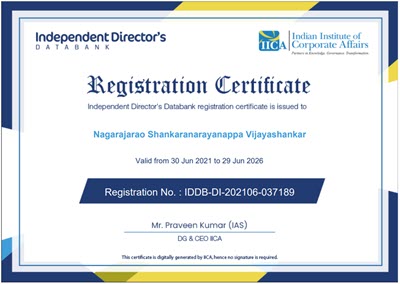
According to press reports, a joint memorandum signed by 120 leaders from various parties in the INDI block has been submitted to MeitY calling for deletion of Section 44(3) which is a provision to amend the RTI Act.
We have already discussed this issue earlier but would like to place our counter views once again.
Currently the RTI Act under Section 8(1) states:
8. (1) Notwithstanding anything contained in this Act, there shall be no obligation to give any citizen,—
* * * * *
(j) information which relates to personal information the disclosure of which has no relationship to any public activity or interest, or which would cause unwarranted invasion of the privacy of the individual unless the Central Public Information Officer or the State Public Information Officer or the appellate authority, as the case may be, is satisfied that the larger public interest justifies the disclosure of such information:
Provided that the information which cannot be denied to the Parliament or a State Legislature shall not be denied to any person.
The current amendment states as follows:
44 (3) In section 8 of the Right to Information Act, 2005, in sub-section (1), for clause (j), the following clause shall be substituted, namely:—
“(j) information which relates to personal information;”.
In other words, instead of the long paragraph which stated that in responding to an RTI request, personal information disclosure of which has no public interest may be withheld from being disclosed. The present amendment simply says that information related to personal information is not under an obligation to disclose.
As expected the George Sorros media outlets have called this amendment “Draconian” and called for its repealing. (Report from Hindu: Report in tehelka.com). It is clear that the opposition is politically motivated to object to the Bill and delay its notification under some pretext or other and this is one such attempt.
In our view this issue is not related to the industry and hence it is not of consequence to the industry.
The DPDPA Rules at present does not include notification of Section 44 and hence this objection does not affect the release of the DPDPA Rules 2025 as is presently envisaged. Section 44 however contains the amendment to ITA 2000 also and hence till this section is notified, the operation of Section 43A of ITA 2000 will continue. The consequences are marginal and not significant.
There is one other aspect to be considered. The RTI act applies to Government organizations which all have “Public” interest embedded into its activities. If an RTI activist is asking for any information, it is related to a public activity. The personal information related to the activity is therefore either that of an official who has public duties or some members of public whose information may be embedded in the disclosed activity.
Data of a public official such as name and designation etc is not “Personal data” but is like “Business Contact Data”. Hence it is possible to treat the information of the official associated with an activity to be disclosed as “Non Personal Data”.
Hence there is no need for any repealing of the section. for this purpose.
At best, an explanation can be added in the rules that ” Information related to an official holding a public function in the Government or a Business function in a Non Government entity is considered as “Public or Business Contact” and not “Personal Data”.
On the other hand it is possible that in some query , information about a member of the public may come out of the disclosure with or without other beneficiaries in the same category.
It can also be argued that as a “Beneficiary” of a “Public service” the member of the public may not be entitled to withholding the fact that he was a beneficiary of a public scheme. Hence there is a ground for considering that the DPDPA does not prevent such disclosures if we can properly classify “Beneficiary Data” of a public scheme as not personal data.
If we have any objection about disclosure of names of members of public who are not connected with the subject query on hand, it will related to the use of some Government services only. Disclosures of these may be redacted where feasible. If there is any suspected fraud, perhaps after the release of the basic information, release of identity of the individuals may have to be sought by a separate appeal.
One positive aspect of this INDI press conference is the confirmation that they donot have objection to any other provision of the Bill or the Rules and hence the rules should be notified quickly.
What we need to do now is to educate the Government departments that any data of a project beneficiary where public funds are involved has to be classified as “Not Personal Data”. This can be added as an explanation in the DPDPA Rules 2025 which discusses the “Legitimate use” for use of personal data for Government schemes.
Naavi










